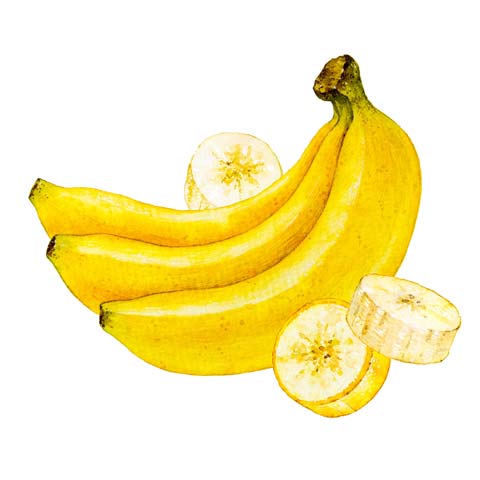

Bananas. We know ‘em, we eat 'em, we love 'em.
Often associated with monkeys or primates, this sweet fruit is a popular food staple among many humans. They are a seemingly simple fruit that has been around a while-nearly 10,000 years to be exact. But, how exactly did this produce staple come to fruition? Let’s find out.
Some scientists believe bananas may have been the world’s first fruit. The first bananas are thought to have grown in a region that includes Indonesia, the Philippines, and New Guinea around 600 BC when Buddhist scriptures noted that Indian traders traveling through Malaysia had tasted it and brought plants back with them. Then Alexander The Great invaded with his army in 327 BC after finding out about its unusual taste from locals who served him their crop (a few centuries earlier). He introduced us westerners to this unusual fruit for the first time.
By 200 AD bananas had spread to China. According to the Chinese history scroll writer Yang Fu, only ever grew in the southern region of this country and were considered a strange fruit until the 20th century when people started consuming them because they tasted better than the original wild varieties which contained many large hard seeds.
The popular name for bananas originates from the Arabian word “banan” which means "finger." Some people believe this may come from West Africa as well but there is no concrete evidence supporting their theory because most knowledge about where these early plants came from has been lost over time due in part to European settlement and colonization efforts throughout Southeast Asia.
Another word for bananas is plantains. It comes from the Spanish word "platano" meaning plane tree because of how much they resemble it in shape when ripe with a green color skin.
Regardless of the name, we all recognize this superfruit for its many benefits.
The most nutritious fruit? You bet! With their vitamins and minerals, bananas are an energy-producing powerhouse.
They even have no fat or cholesterol - making them perfect for people who need to watch their health closely.
In addition, bananas contain carbohydrates which produce fuel for your body, potassium to maintain normal heart rhythm and regulate blood pressure levels as well as vitamins B6 & C - all essential in maintaining good health.

Ever wish you could order fresh produce in a timely manner and not have to spend an arm and a leg for grocery delivery? So do we, which is why we created Caboodle Groceries.
Caboodle Groceries takes an app-based approach to shopping. In the app, you’ll choose bundles of groceries across 12 different categories that represent the various aisles in a grocery store. That means you can get a full array of foods, from various food groups.
Want to add a produce bundle? Go for it! You can curate your grocery list in only 6 minutes. Gone are the days when you had to spend more than an hour driving and waiting around at stores. Now, you are saving both time and money with grocery delivery.